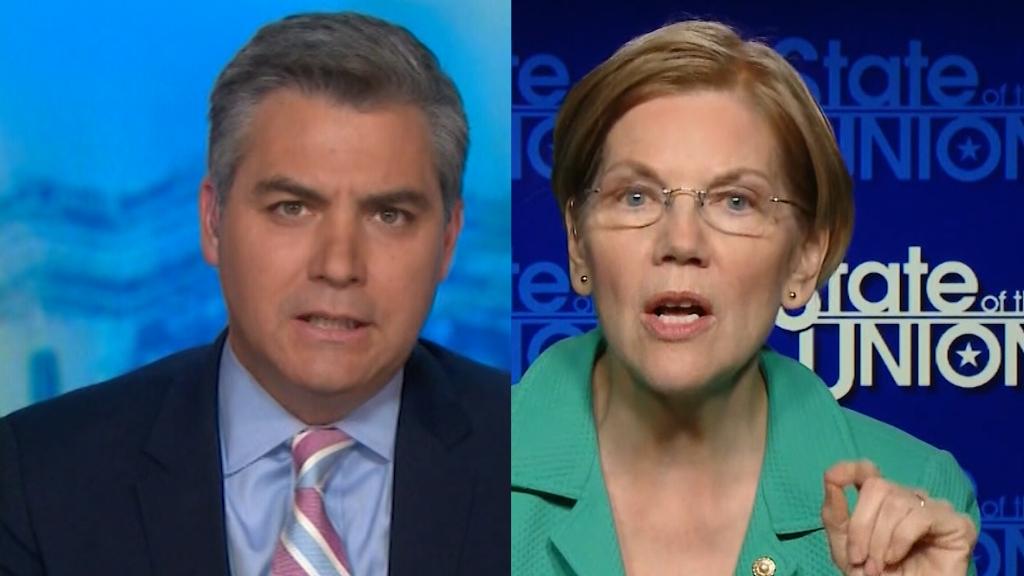
Congress is considering killing an Obama-era rule that protects Americans from discriminatory car loans.
The Senate is expected to vote Wednesday on whether to repeal auto lending regulations aimed at ensuring that minority car buyers aren't charged higher interest rates.
Critics of the 2013 rule argue that the Consumer Financial Protection Bureau overstepped its authority, hurting both the auto industry and car buyers.
"Republicans are chopping away at the tangled mess of regulations that the last administration left behind," Republican Senate Majority Leader Mitch McConnell said on Tuesday.
McConnell said that overturning the rule would "protect consumers" and halt a "brazen attempt" by the CFPB to "interfere in the auto industry." He noted that Dodd-Frank, the post-financial crisis law that created the CFPB, prohibited the consumer watchdog agency from regulating auto dealers.
Yet there is little evidence that the auto industry is being strangled by regulation, and the industry has some history of discriminatory lending.
As recently as 2015, the Justice Department and the CFPB accused Ally Financial (ALLY) of charging higher interest rates to 235,000 car loan borrowers who were Hispanic, African-American or Asian/Pacific Islander.
Minority customers paid an additional $200 to $300 each over the life of the car loan, regulators said. Ally Financial, which paid $98 million to settle the case, said it doesn't believe its dealer network was deliberately discriminating.
"Auto dealers are actively discriminating against people of color," Karl Frisch, executive director of progressive consumer group Allied Progress, said in a statement.
"Unfortunately, the auto industry is in the driver's seat in the Senate and people of color are the ones being taken for a ride," Frisch said.
Related: Congress could give bank shareholders $53 billion gift
Auto dealers have great sway in Congress. Republican Senator Jerry Moran of Kansas, who introduced the repeal resolution, has received more than $225,000 in campaign contributions from the auto industry during his career in Congress, according to OpenSecrets.org. Moran's office declined to comment.
The controversy began in 2013. Instead of proposing a formal rule, the CFPB issued "guidance" warning auto lenders to adhere to fair-lending laws that prohibit discrimination on the basis of race, color, religion, gender, age and other classes. The CFPB threatened to use "all appropriate regulatory tools" to ensure that auto lending is fair.
The Government Accountability Office ruled last year that the CFPB guidance is effectively a rule. That makes it subject to the Congressional Review Act, which allows lawmakers to repeal regulations they disapprove of with a simple majority.
Overturning the rule would still require approval by the House and President Trump.
An editorial in The Wall Street Journal this month slammed the auto lending regulation as "one of Obama's worst rules" and applauded GOP efforts to repeal it. "Relief may finally be on the way," the paper said.
Related: Trump official denies he's trying to destroy CFPB
Yet there is evidence that minorities have been charged more for car loans.
The National Consumer Law Center found "widespread racial disparities, unrelated to credit risks" in the pricing of car loans between the late 1990s and the early 2000s nationwide.
The nonprofit consumer group said significant racial disparities were found in "every state with sufficient data and in every region of the country." In some states, black borrowers were charged 300% more for car loans than white borrowers.
"Let's be clear. Discrimination in auto lending is alive and well," Democratic Senator Elizabeth Warren said on Tuesday from the Senate floor. She called a vote in favor of the resolution a "vote to support the Trump administration's systematic dismantling of fair lending laws in this country."
The CFPB declined to comment on efforts to gut the auto lending rule. Mick Mulvaney, who was appointed acting director by Trump, has moved to rein in the consumer watchdog agency. As a congressman, he pushed to abolish it.
The Consumer Federation of America, a nonprofit group, warned that repealing the auto lending guidance "would grant car dealers free rein to discriminate against minority borrowers."
Despite the greater scrutiny from regulators, the auto industry is thriving, and access to credit appears strong. Car sales dipped slightly last year, but remain near record highs. Auto loans hit an all-time high last year, according to the New York Federal Reserve.
Americans have increased their auto debt by $427 billion, or 54%, since the CFPB guidance was issued in early 2013, according to NY Fed data.
Auto loan debt stood at an all-time high of $1.2 trillion at the end of 2017. In fact, last year Americans added a record amount of auto debt.
— CNN's Donna Borak and Ted Barrett contributed to this report.


